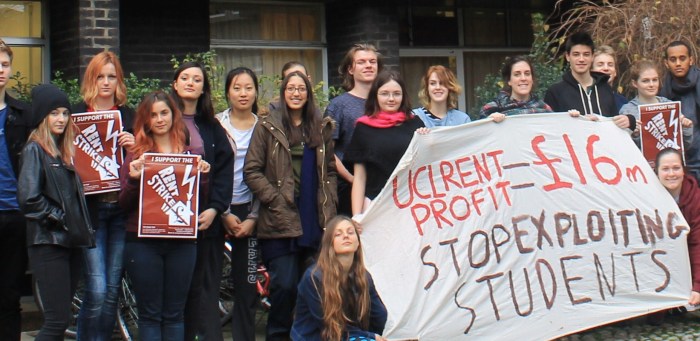We’ve planned loads of events for you, we know exactly what you wanted and we’ve delivered like never before. Below is a handy guide to your life for the next few weeks:
06/10/15: 17:00 – Jeremy Corbyn: What Next For The Left?
In this year’s first UCL Left Forum meeting, we will try to answer the questions: what does Corbyn’s victory mean and what happens now and how can we make sure that all the people who are excited about left politics stay mobilized and militant? Afterwards, we’ll decamp to the UCLU Labour social!
Where?: Institute of Education Bar S14
Event Page: https://www.facebook.com/events/480458088800891/
07/10/15: 18:00 – Winning the Rent Cut – Open Meeting for the UCL, Cut the Rent Campaign
This meeting will focus on how a rent cut can be won – building on what has been learnt from the campaign last year and the successful action taken by the students protesting in Hawkridge House and Campbell House – and planning exactly the steps that will be taken in order to build an effective campaign from the residents in the halls upwards.
Where?: TBA
Event Page: https://www.facebook.com/events/964826676907267/
08/10/15: 18:00 – Grant Cuts, Rising Fees and a Housing Crisis: UCL Defend Education Launch Meeting with Lesbians and Gays Support the Miners
The new Tory government is planning brutal attacks on students and education. They want to take maintenance grants away from the poorest students, hike up repayments on loans we’ve already taken out, and marketise universities while slashing funding for colleges – not to mention dismantling the wider welfare state while a cost of living crisis enforces rip-off rents.
But if we fight back together, we can beat them! UCL Defend Education is part of a movement campaigning to stop these attacks, and to win free, democratic education for everyone. Come along to find out more about activism at UCL, and engage in the debate over education, the priorities of society and what we as students can do about all this.
Speakers:
Clive Bradley, Lesbians & Gays Support the Miners (as featured in the film Pride)
Raquel Palmeira, National Campaign Against Fees & Cuts
Hannah Webb, National Union of Students Exec
Angus O’Brien, UCL Cut the Rent activist & UCLU Halls Officer
Tom Robinson, UCLU Welfare & International Officer
Where?: Kathleen Kenyon Room, Lewis’ Building
Event Page: https://www.facebook.com/events/744561008982297/
09/10/15: 19:00 – Pints and Politics: UCL Lefty Welcome Drinks
If you’re interested in lefty political ideas, crazy things such as reducing inequality, saving the environment and fighting cuts to public services, or if you’re just a bit weirded out by what David Cameron did during his time at university, come for a relaxed evening and a chat about politics and campaigns on and off campus.
No background knowledge is required – we won’t be giving you a test or make you argue with someone over their interpretation of the twenty-fourth page of the Communist Manifesto. Probably best not to come if you’re a Tory, though.
Have a soft or not soft drink and talk about stuff – and don’t worry, we’re nice people.
Where?: Institute of Education Bar
Event Page: https://www.facebook.com/events/1472662343041562/
12/10/15: 17:00 – WTF IS GOING ON?: The Fight For Education
This meeting will explain “WTF is going on?”, with help from speakers involved in the National Campaign Against Fees and Cuts and the National Union of Students, and discuss ideas about what we can do to get involved in the fight for education.
Where?: Institute of Education Bar S14
Event Page: https://www.facebook.com/events/543748365790984/
04/11/15: 13:00 – NATIONAL DEMO: Free Education and Living Grants For All
From scrapping Maintenance Grants, planning to raise tuition fees, slashing support for disabled students and making brutal funding cuts to Adult & Further Education; to keeping thousands of people locked up in detention centres and deporting international students to their deaths: the Conservative Government is attacking us from all sides, and it’s time to fight back.
Where?: Assemble on Malet Place
Event Page: www.facebook.com/events/1449378505377525/
 Victory to the #RentStrike!
Victory to the #RentStrike!
















